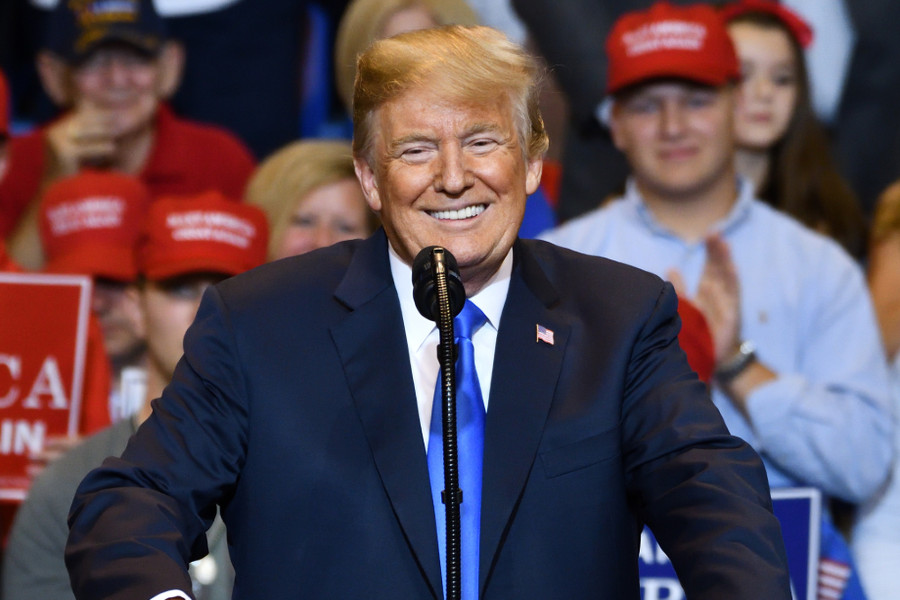Politics
Top Economist Flips, Admits Trump ‘Outsmarted All Of Us’ On Tariffs

A well-known Wall Street economist who had previously criticized President Donald Trump’s tariffs earlier in the year has suddenly changed his tune. Torsten Slok, the chief economist with investment firm Apollo Global Management, is now saying the president “outsmarted all of us” with these highly controversial trade policies.
Slok explained that while the uncertainty that surrounds these policies is now beginning to have an effect on the economy, the president could lower the tariffs on most of the country’s trading partners. Meanwhile, he could utilize the levies to help increase federal revenue.
The economist then stated in an analysis of the tariff policies recently published that the approach taken by the current administration might have been more strategic than critics previously thought.
His new comments on the president’s trade policies are very different than his previous position. In April, Slok issued a warning about the tariffs, stating that they could potentially trigger a recession by summer. He said American small businesses would be especially decimated in such an event.
Slok predicted that goods being imported from China to the U.S. could come to a halt, leading to significant layoffs and an economic slowdown.
Now, however, he’s suggesting that President Trump could keep 30 percent tariffs on Chinese imports while slapping a 10 percent tariff on all other nations, providing them with a window of a year to shrink non-tariff barriers and help free up trade access.
“Extending the deadline one year would give countries and US domestic businesses time to adjust to the new world with permanently higher tariffs,” Sløk said in his analysis. “It would also result in an immediate decline in uncertainty, which would be positive for business planning, employment, and financial markets.”
“Beyond calming volatile markets, Sløk notes that such a move could deliver a sizable boost to US government revenue. He estimates the plan could generate $400 billion in annual tax revenue — a figure that could help offset budget deficits without raising domestic taxes,” The New York Post reported.
“This would seem like a victory for the world and yet would produce $400 billion of annual revenue for US taxpayers,” he added. “Trade partners will be happy with only 10% tariffs, and US tax revenue will go up. Maybe the administration has outsmarted all of us.”
White House spokesperson Kush Desai spoke with the NY Post through email and said, “President Trump was right all along? Many such cases!”
On Friday, the president announced that the United States had signed a new trade agreement with China. As of this writing, the full text of said agreement has not been released to the public.
While progress is being made in trade talks with China, the administration is staring down the barrel of the July deadline, following the 90-day pause on tariffs it has with several global trading partners.
“Talks are ongoing with 18 nations, including the European Union, Japan, India, Vietnam and Malaysia. Some progress has been reported, such as a framework deal with the UK and early-stage agreements with Vietnam and India, though most deals are not finalized,” the report added. “If negotiations fall through, the US is prepared to reimpose or raise tariffs. Analysts are skeptical that meaningful deals can be completed on such an aggressive timeline, warning that most trade pacts typically require years of negotiation.”
Some believe the president might decide to extend trade talks past the July deadline — possibly to the early part of September — while working on stabilizing global trade relationships.

